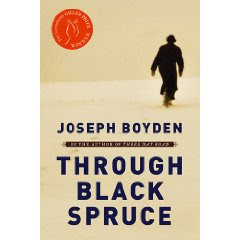 I have been doing some reading and re-reading on Ayn Rand – reminding myself of the philosophies borne out of books like Atlas Shrugged and Fountainhead. She was a fascinating woman, analytical, forthright, vocal and very, very smart. I still cannot open any one of her works without feeling a little bit intimidated. That said, I always welcome the challenge her ideas invite and the way they turn my sometimes conventional thinking upside down.
I have been doing some reading and re-reading on Ayn Rand – reminding myself of the philosophies borne out of books like Atlas Shrugged and Fountainhead. She was a fascinating woman, analytical, forthright, vocal and very, very smart. I still cannot open any one of her works without feeling a little bit intimidated. That said, I always welcome the challenge her ideas invite and the way they turn my sometimes conventional thinking upside down. Rand was a writer and a playwright whose ideas were borne out of Aerstotilian ethics, the concept that individuals have nobility and they have a duty to realize their potential. Her philosophy she called “objectivism” and she described it as the concept of "man being a “heroic” being with the moral purpose of his life being his own happiness and reason as his only absolute". Central to her ideas were the concepts of selfishness and altruism. Selfishness, she claimed was the ultimate moral act for an individual, that one could not assume responsibility of his or her own happiness without it.
Altruism, on the contrary, was evil. She defined it as “sacrificing of yourself to someone else in such a way that you are placing their interests ahead of your own.” What is wrong with that, I would have liked to ask? “What is wrong with suicide?” she’d say. “What is wrong with giving up life? And why is the happiness of another person important and good but not your own? Why are you the outsider or sacrificial animal? In a good relationship there should be no victims, no sacrifices.”
It’s an odd thing to think about - the evils of altruism – but I decided to explore it a bit, from my own vantage point, as a mother - a great case study, I thought, given there is no competition more obsessed over than the relative martyrdom of mothers. Who has done more, who hasn’t done enough, who gave up their career to care for their children, who built a career to better provide for their children? It’s a circular argument that has gone on for decades, but has been especially vitriolic these last eight neo-con dominated years.
What is interesting is that, while we mothers argue about who has made the greater sacrifice, Ayn Rand tells us we have made no sacrifice at all – that if we love someone, then we get something out of it (children providing love and generational continuity) and that, by definition, is selfish.
A truly altruistic mother would stay at home with or work for someone else’s children but not her own. A truly altruistic wife would pay for cancer treatment for someone else’s spouse but not her own. A martyr, an altruist, does not place their interests above those of others and does not respect their moral obligation to themselves and their own happiness (their loved ones being an adjunct to themselves).
And so, she concludes, we must accept selfishness as a personal responsibility.
It all sounds so callous. I don’t think she ever had children so I can only guess at how her thinking might have evolved. She may have benefited from spending a day with someone like me. I don’t feel particularly good when I’m scolding my girls to practice piano, to finish their homework or clean up their mess - but I can’t decide if I’m being selfish for wanting their success or altruistic for letting them to drive me crazy:)
I do think exploring objectivism against our everyday values is a worthy exercise, to put accepted thinking to the test. It certainly helped me appreciate the hypocrisy of the whole “mothering” argument. But I do believe that mothers feel a sacrifice. I do think that no choice is perfectly selfish or altruistic. There are always regrets and what-ifs and what-could-have-beens. I believe this is what really ignites the “mothering” argument and perhaps what casts a shadow on Rand’s philosophy – that choosing a fork in a road is not so black and white, that even if one acknowledges the merits of a selfish act, acts out in a selfish way, one cannot necessarily conclude that, they had indeed, been selfish.
It’s a complicated argument, a great forum for discussion - I know I’ve only scratched the surface – I’d love to go on but, then with whom? I am reminded of a chapter in Alan Greenspan’s book, Age of Turbulence (great book by the way), where he mentions weekly parlour parties hosted by Ayn Rand with some of the smartest minds in New York, Greenspan among them, sitting around her apartment, smoking, drinking, debating the latest philosophical and political ideas. It would have been the coolest experience, to debate with Ayn Rand. Unfortunately, I won’t benefit from such a connection. But I still have her ideas. And I’ll continue to test them against conventional thinking, just as I did with motherhood. Maybe she’ll surprise me again as she did this time. Indeed, I was only too happy to learn I am no martyr. It was too much of a burden anyway.


